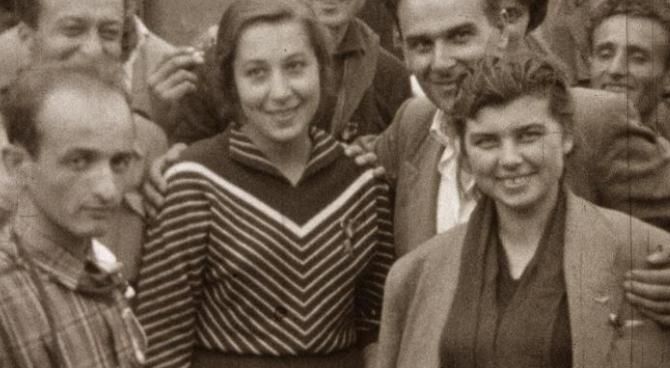Panorama Dokumente screening - review - THE DECENT ONE (Der Anstandige) by Vanessa Lapa
 Do mass murderers have a bright and lighter side? Of course they do, still that does not necessarily forgive or explain the stubborn evil deeply rooted in their soul. Heinrich Himmler is one of the most evil figures in the history of mankind – leader of the SS and one of the closest associates of Hitles himself, not to mention quite possibly the man most responsible for the holocaust. Yet, he too had a family he cared for, and this contrast of the mass murderer speaking of love and the final solution with the same tone of warmth and self-righteousness is the most haunting element of the film.
Do mass murderers have a bright and lighter side? Of course they do, still that does not necessarily forgive or explain the stubborn evil deeply rooted in their soul. Heinrich Himmler is one of the most evil figures in the history of mankind – leader of the SS and one of the closest associates of Hitles himself, not to mention quite possibly the man most responsible for the holocaust. Yet, he too had a family he cared for, and this contrast of the mass murderer speaking of love and the final solution with the same tone of warmth and self-righteousness is the most haunting element of the film.
The Decent One by Israeli-based filmmaker Vanessa Lapa is structured around recently discovered letters and correspondence between Himmler, his wife and his family. It is through the letters of his wife that the most intimate side of Himmler comes through. This is revealed in the passages such as the one where he debates upon the best way to explain to his daughter the concept of war. Furthermore, the film is structured to tell the tale of Himmler’s rise to power in chronological order, and hence we see the evolution of his idealisms.
 Lapa’s film is certainly a history lesson that will be worth the time of people with a deep interest in the historical period and the Third Reich. It’s certainly a lesson that aims to humanise the figure of Himmler in a way that doesn’t necessarily render him more human. However, The Decent One leaves room for criticism. In her attempt at creating a film that may engage the audience on an entertaining level too, some of the stylistic choices are questionable. While the letters being recited by actors is a welcome choice though it delicately aims to give unique spins on real life characters, heavy handed sound editing and an all too free use of archive footage to underline the words in the letters can be looked upon as lessening The Decent One’s feeling of authenticity. This is a little trivial, as one would expect a greater sensibility from a documentary that aims to uncover a side to one of the most controversial figures in history that isn’t seen very often at all.
Lapa’s film is certainly a history lesson that will be worth the time of people with a deep interest in the historical period and the Third Reich. It’s certainly a lesson that aims to humanise the figure of Himmler in a way that doesn’t necessarily render him more human. However, The Decent One leaves room for criticism. In her attempt at creating a film that may engage the audience on an entertaining level too, some of the stylistic choices are questionable. While the letters being recited by actors is a welcome choice though it delicately aims to give unique spins on real life characters, heavy handed sound editing and an all too free use of archive footage to underline the words in the letters can be looked upon as lessening The Decent One’s feeling of authenticity. This is a little trivial, as one would expect a greater sensibility from a documentary that aims to uncover a side to one of the most controversial figures in history that isn’t seen very often at all.
Nevertheless, there is no doubt about the approach being successful in making the documentary seeming more accessible. A point worthy of note, it will be interesting to see the impact and the reaction which The Decent One will have on the two countries that produced it and the two countries that will most deeply be affected by the subject matter, Germany and Israel.
RELATED ARTICLES
MORE REVIEWS FROM THE 64TH BERLINALE
64th Berlinale - review - THE DOG by Frank Keraudren and Allison Berg


